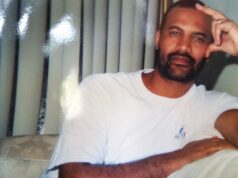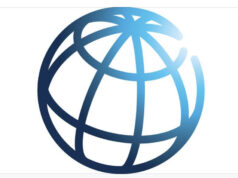/Aklog Birara (Dr.) Part II/
Independent, objective and impartial media is a powerful force in providing the public with information that they need. Such media is instrumental in representing the voices of those whose hopes and aspirations are suppressed by their own governments. It is arguably the most important vehicle in advancing social justice and democratization. At the same time, those of us who leave our homelands in search of freedom fail to use precious freedom and the instruments of social and other media (Facebook, Twitter and other media) to inflame issues rather than to build bridges back home. In the process we diminish the constructive impacts of such media. Political elites exploit these differences expressed in social media liberally to advance their own interests.
Distortions in social media make a stronger case for major media outlets to play a much more impartial and objective role in advancing justice, the rule of law, peace and stability.
Al-Jazeera’s analysis of the Ethiopian crisis on February 22, 2018, “Who will be Ethiopia’s next prime minister? Will the appointment of a new Ethiopian prime minister only acts to save the ruling party, or usher in deeper reform?” is a welcome analysis involving Ethiopians who live and work in the country more intimately than foreign experts. Here too I commend Al-Jazeera for seeking inputs from Ethiopian experts. I am ready and willing to offer my assessments to Al- Jazeera.
I highlighted in Part I of this commentary that Ethiopia is unique. It is a mosaic of faiths and peoples. The fates and bonds of its 110 million people are unbreakable. Ethiopia shall surmount its current crisis and emerge stronger than ever. Ethiopia’s human and expert capital is enormous. But this talent pool is unrecognized and unappreciated by the global community and by the media.
The popular uprising, against the repressive and oppressive regime that persisted unabated since November 2015 and that cost the lives of thousands of innocent people, most of them young, is not to replace one oppressive system or dictatorship or Prime Minister by another. Rather, it is to overhaul the entire system and usher in representative democracy that places political authority in citizens. The appetite and urgency of change in the system is so deep and strong that even the state of emergency has done little to diminish it.
The people of Ethiopia are sick and tired of marginal and pretensions reforms. Appointing a new Prime Minister of any ethnic or religious background won’t deal with the root causes of the problem. Tsedale Lemma, Editor-in-Chief of the Addis Standard newspaper is right. “A change of guard is not what the people want.” Regardless of ethnic or other affiliation, Ethiopian
citizens want to be heard. They want to be represented in policy and decision-making. They want to enjoy free and fair elections. They want their representatives to be accountable to them and not to a distant, detached, careless and self-serving governing party. Ethiopians are unanimous in their conclusions that reform only prolongs the agony of the population and endangers the country’s future.
I should like to underscore the fundamental principle that demand for fundamental change is uniformly an all-Ethiopian concern. It is not an Amhara or Oromo or Annuak or Somali or Afar or Tigrean or Wolayta etc. concern. It is an Ethiopian concern. So, segmentation diminishes the collective will for fundamental change.
The way to go is to be bold enough; and courageous enough; and allow transformative change sooner than later.
A change in individual or collective leadership within the governing party will do nothing to address the root cause of the problem and the dangerous crisis Ethiopia is facing. Marginal change has been tried numerous times; and failed to satisfy popular demand. Ethiopians as citizens are willing and ready to sacrifice their lives for fundamental change. The contention by the governing party that it has reformed itself; has learned from the past; and is redeemable is preposterous and misleading.
I have pointed in past commentaries that there is no distinction between the party, the state and the government. They are one and the same. The party goes through the charade of self- assessment almost every year. Aside from the rhetoric of “renaissance and deep renaissance,” it has never questioned its legitimacy to govern. For all practical purposes, there is no government in Ethiopia. This glaring gap in legitimacy cannot be addressed by the current state of emergency.
What is needed then is a transitional government of national unity that involves all stakeholders and that leads to free and fair elections supervised by U.N. observers.
My plea to Al-Jazeera and other media is to be more inclusive in their coverage of Ethiopia’s political crisis. Call us Ethiopians instead of using ethnic silos. The TPLF used Ethiopia’s incredible and rich diversity to divide and rule; rather than to strengthen the bonds of Ethiopian society. Refraining from the unfortunate narrative of segmenting Ethiopians by ethnicity and religion will go a long way in making a case for the Ethiopian people as a whole. This will also strengthen the credibility and acceptability of reports on Ethiopia.
In a commentary “Ethiopia ‘at crossroads’ after Haile Mariam resignation” on February 15,
2018, Al-Jazeera reported that “Ethiopia is at a critical political juncture…. after the snap
resignation of the country’s prime minister.” In reality, tensions began to build up since the stolen election in 2005 and the spread of the popular uprising since November, 2015. This ten- year window offered the TPLF dominated regime a window of opportunity to examine its poor
and repressive governance with a view of making a transition towards genuine democracy, the ultimate demand of the population regardless of ethnicity.
Befekadu Hailu, “an Ethiopian writer and activist” was quoted by Al-Jazeera as having projected that Ethiopia ‘will slide deeper and deeper into chaos if the root-causes of the ongoing protests are unaddressed’; and if the TPLF takes draconian and repressive actions against the civilian population. Befekadu said that, “while it is difficult to predict what will come next, he feared the most dominant group within Ethiopia’s ruling coalition, the TPLF, may take drastic measures to maintain its grip on power, including a potential coup.” It has done that. A military regime has been installed.
A few months ago, the TPLF guided newspaper Addis Standard had released a comprehensive and well-developed strategy and action plan in the event public unrest continued to persist and government institutions collapse. The new state of emergency that gives complete and unfettered authority to TPLF defense, security, police and other special forces moves Ethiopia to the level of a police state dominated by the TPLF. Command posts have been set-up in critical parts of the country where the popular resistance is high. The Oromo and Amhara regions are special targets of the third state of emergency.
It is gratifying and a welcome development that the U.S. Ambassador to Ethiopia continues to “disagree” with TPLF’s dangerous game of adding fuel to the fire. Ethiopians within and outside the country have no other option but to unite beyond ethnicity and religion and defy the state of emergency; and call for a transitional government of national unity whose immediate task is to restore peace and order; and prevent further killings through extrajudicial measures.
Killings have already began using the state of emergency. There is an urgent need to preserve the country’s territorial integrity and national sovereignty; and to avert civil conflict that could potentially lead to genocide. The best option is an-all-inclusive conference in Ethiopia.
The formation of a transitional government of national unity requires wisdom and clear thinking. All stakeholders must be involved in the process. The desires, hopes and demands of the people for a democratic state and government and not political elites must govern the transition. Ethiopians must learn from the failed transitions of the past—from Imperial rule to the military and from the military dictatorship to the TPLF dominated ethnic coalition. All these governments denied Ethiopians to be masters of their destiny.
The demand of the population today is not to replace the TPLF with another form of TPLF. Instead, it is to vest power in ordinary citizens and to make sure that officials are solely accountable to the Ethiopian people. A rubber stamp parliament that approves a new state of emergency shows that elections in Ethiopia are a mirage that empower TPLF dominance and capture of the economy. The solution to this mirage is to conduct free and fair elections, managed by free institutions and impartial international observers.
The demands highlighted above affect almost all Ethiopians. For example, the media fails to refer to atrocities committed against indigenous people in the Omo valley; in Gambella; in
numerous parts of southern Ethiopia and in the Afar region; in the Ogaden and others. These are among the most natural resources rich regions of the country. Their lands and other resources have been captured by the TPLF and through it by investors both domestic and foreign. Al-Jazeera’s February 20, 2018 report “Ethiopia: Mass protests ‘rooted in country’s history” misses this vast land area and population.
The need not to segment in media coverage
Our ethnic or religious identity is a given and a blessing. However, segmenting Ethiopia’s population by ethnic affiliation is no longer viable and or fair. The Amhara and the Oromo are not the only people in Ethiopia who are oppressed and “marginalized.” They are visible and vocal because of their numbers. But, what about the rest of Ethiopians? The common thread that defines us as people is being human and Ethiopian. This commonality supersedes all else.
Land grab is not limited to the Amhara and Oromo regions. In fact, it is more pervasive and debilitating in the Omo valley, in Gambella and in numerous parts of the south and in the Afar region. The overwhelming political, economic, financial and diplomatic dominance of the TPLF affects all Ethiopians, including ordinary Tigreans who are not part of the TPLF “gang of
looters.” It is this monopoly that the TPLF wishes to continue.
What Ethiopians need is inclusion and not ethnic and religious segmentation. I therefore urge Al-Jazeera to change its narrative by using the term Ethiopians.
A meaningful and objective approach to the reporting is to be inclusive and treat citizens rather than ethnic groups. Ethiopians are being punished by the TPLF because they, together as Ethiopians, are trying to liberate themselves from the oppressive TPLF system of governance.
A democratic system is inevitable in Ethiopia. This is because all Ethiopians want democracy and are dying for it. Free and fair elections are imperative in achieving this ultimate goal. If the reader believes as I do that free and fair elections are fundamental to lift Ethiopian society from the current crisis, it behooves us to accept the notion that reform won’t work. Reform will simply make changes at the margins; but keeps the root causes of the current protest movement unresolved.
Ambassador Herman Cohen wrote a set of good options that Ethiopians must consider. In
“What is next for Ethiopia?” he offered the following options:
“To the Government of Ethiopia: Consider the organization of an all-party reconciliation conference, with international observers, leading the first ever democratic option;
To the Ethiopian opposition: start thinking about a formula that will give the current power elites confidence that they have a safe future in Ethiopia regardless of the political outcome.”
These are well considered options but require moral and diplomatic suasion. In my view, the state of emergency will engender another cycle of violence and make Ethiopia more vulnerable.
Ethiopia’s external enemies will benefit from this insecurity and vulnerability. An already broken trust and confidence will dissipate even further.
The reality on the ground is that every segment of Ethiopian society is being punished by the TPLF. When the vast majority is imprisoned under a state of siege of the TPLF, the common denominator that should and must guide the struggle is not division but unity of purpose and unified action against the same tormentor. It is this commonality that Al-Jazeera and other media outliers miss and must rectify as friends of the Ethiopian people.
However important, Ethiopia’s past misfortunes and fortunes should not guide the future. The past is useful as a source of wisdom but does not shape and should not shape the hopes and aspirations of 110 million Ethiopians. Ethiopians need to rise up; forgive one another; and establish a political and socioeconomic system that is fair and just for everyone.
The arrogant and dismissive TPLF
U.S Congressman Dana Rohrabacher tweeted recently that the TPLF “game is over.” He presented the following vital and legitimate demands to the TPLF in order to avert potential catastrophe:
“An ultimatum to the TPLF dominated regime to allow N. rights monitors entry to
probe rights abuses;
An offer to the regime to comply to the above demand of allowing the monitors by
February 28, 2018 or face the risk of “a formal condemnation vote by the U.S. House of Representatives.”
These demands converge with the American Ambassador’s plea for annulling the state of emergency and with Ambassador Cohen’s for convening conventions and negotiations with all stakeholders at the earliest opportunity. Sadly, the TPLF is doing the exact opposite. Arrogant, narrow minded, greedy, unwilling and unable to learn from Ethiopia’s past political history and the opportunities that the popular protests offer Ethiopia for peaceful change; and ignorant of the powerful social forces that drive fundamental change in any country, the TPLF-dominated state and government refuses to accept the importance and desirability of change through direct dialogue and negotiation with civil society, faith communities, elders, youth, women and political parties within and outside Ethiopia.
The state of emergency that will bring more repression and killings of innocent civilians won’t stop the resistance. The population is determined to pay any price in order to achieve freedom and democracy. The so-called “opposition” will be ignorant and backward if it does not unite under one Pan-Ethiopian umbrella organization; and unless it is guided and governed by the popular resistance led by youth. It is time to serve the people and not political or economic elites.
Since the new state emergency, Ethiopians defied the police state through economic and trade boycotts and sit-ins. There is no way that the TPLF will have the capacity to go house to house and arrest millions of Ethiopians. Admission of failure is wisdom. Sadly, I know of no single TPLF leader or general or other who possesses wisdom. Potential wisdom does, however, reside in the ordinary Tigrean population and this group of Ethiopians needs to rise-up against the TPLF before it is too late. I know of no single person in the opposition camp who wants vengeance against ordinary Tigreans or other group of Ethiopians.
In sum, it is time for the TPLF to accept defeat by the people and agree to an honorable way out from the morass it created. The defeat on the ground does not come from Ethiopia’s weak and fragmented opposition. It is coming from the one social force that the TPLF cannot control any more, the people.
For any clear-thinking person, it is not rocket science to recognize that innocent blood, including of those as young as 3 months old has been shed. This non-erasable and unforgettable stain occurred in the Afar, Amhara, Gambella, Ogaden, Oromo and southern regions through extrajudicial measures by the TPLF and its hired hands. If the TPLF chooses to murder more, it shortens its own life and endangers the lives of millions including Tigreans. It certainly will endanger Ethiopia’s territorial integrity.
This is the reason why a wave of governments, the U.S., the U.K., Germany, the Netherlands as well as the EU condemned the latest state of emergency. Stability is vital not only for Ethiopia but the entre Horn of Africa. But, it should not come at a cost to innocent lives and livelihoods. It should not come at a cost to freedom and justice.
The U.S. Embassy’s concern and disagreement is appropriate.
“We strongly disagree with the Ethiopian government’s decision to impose a state of emergency that includes restrictions on fundamental rights such as assembly and expression,” the embassy said in a statement. The state of emergency, the embassy said, “undermines recent positive steps toward creating a more inclusive political space” and sends a message to the Ethiopian people that “they are not being heard.”
Equally, the European Union’s statement is timely and converges, in part, with that of the U.S.
On February 19, 2018, the EU released this statement.
“The resignation by Prime Minister Haile Mariam Desalegn opens a period of uncertainty in Ethiopia. It will be important for the new government to have the full capacity to pursue the positive reforms initiated by the Prime Minister to address the grievances of the population. Only a constructive dialogue among all stakeholders – authorities, opposition, media, civil society – will allow for a peaceful and durable resolution of the crisis.
The announced reinstatement of the State of Emergency risks undermining this very objective. It is therefore of the outmost importance that it should be as limited in time as possible and
respectful of human rights and fundamental freedoms, notably those enshrined in the
Ethiopian Constitution. Violence should also be avoided.”
Sadly, the wishy-washy statement by the E.U. gives tacit approval to the TPLF and emboldens it. No state of emergency should be tolerated unless the EU determines that the lives of innocent Ethiopians do not really matter; and that a false sense of stability is preferred. This mixed message is unfortunate and should be reconsidered by the EU top leadership.
Twenty-seven years of repression and oppression prove that the TPLF won’t submit to the popular will of 110 million people. It is time for the EU to side with Ethiopians; and not bankroll one of the most repressive regimes on the planet.
“Partnership” with a dictatorship is tantamount to abandoning the core principles for which Western societies including the EU stand. There can’t be two standards of justice and the rule of law: one for North Korea, Iran etc. and another for Black or Sub-Saharan Africa including Ethiopia.
In summary, Ethiopians prefer freedom to Western aid and the sooner the West realizes this desire, the better for both. The global media including Al-Jazeera should stop segmenting us by ethnicity or religion. Instead, it is time to treat us as Ethiopians who are committed to democracy.
March 1, 2018
























